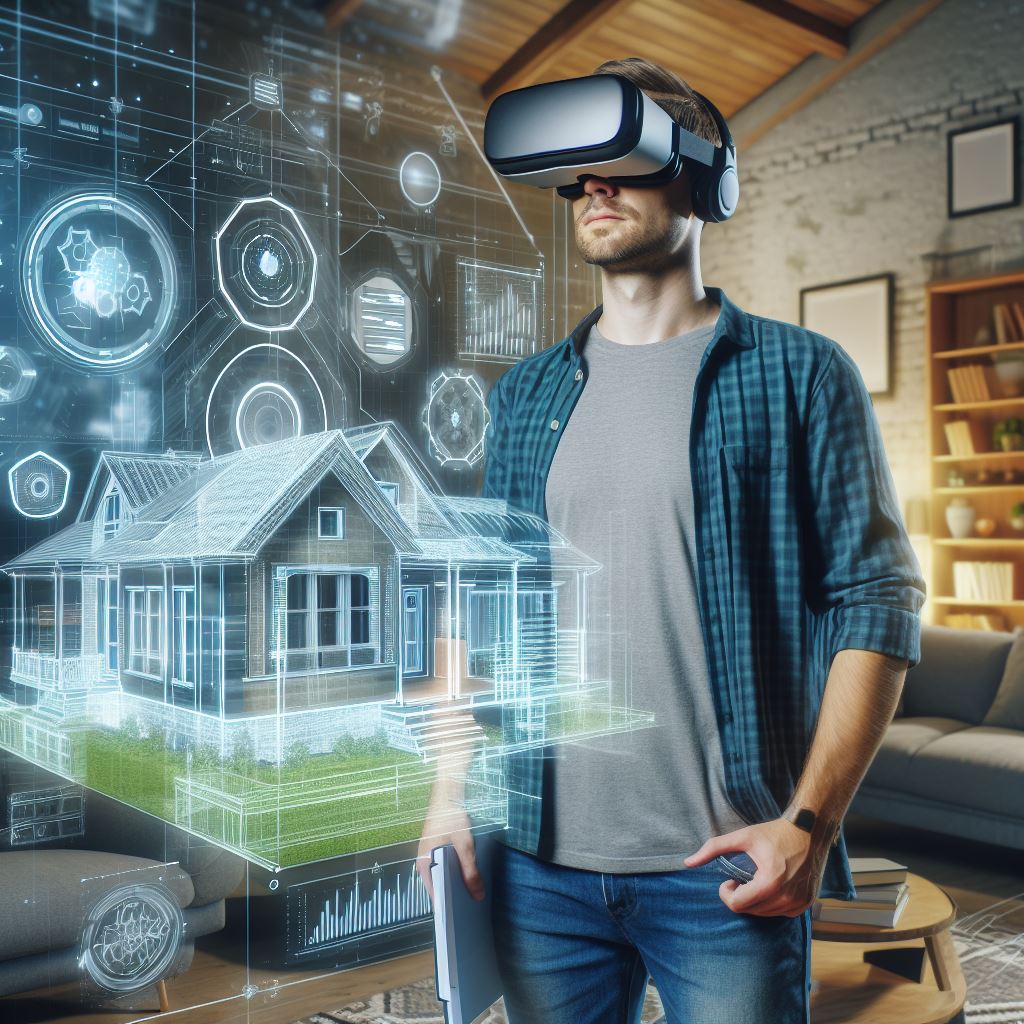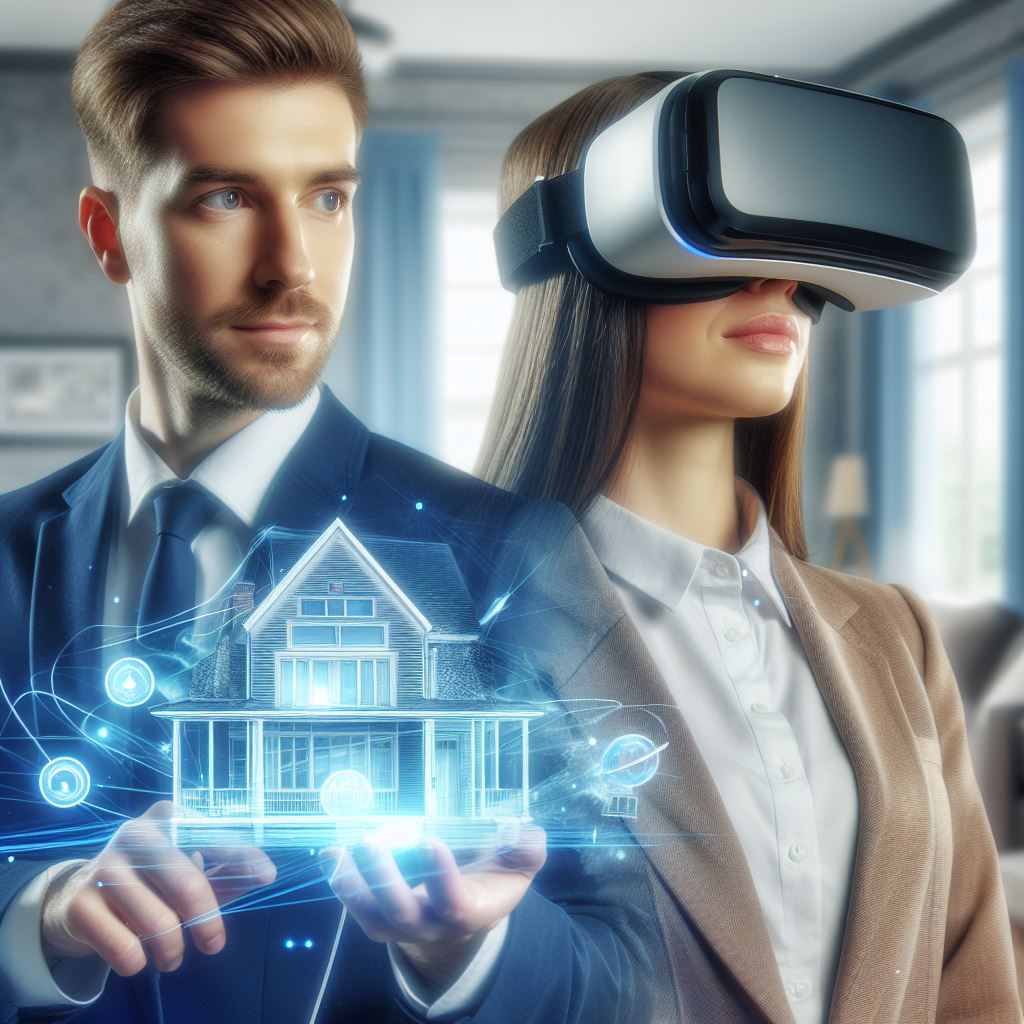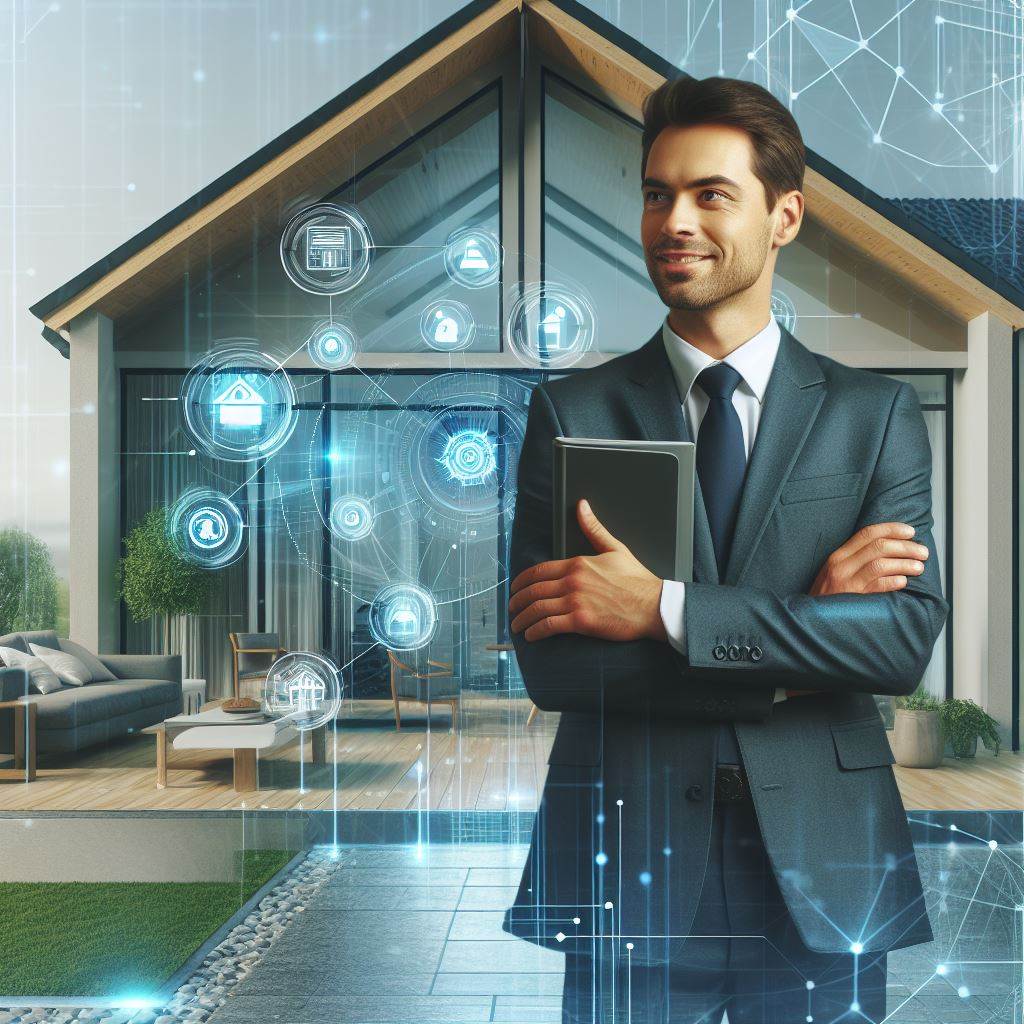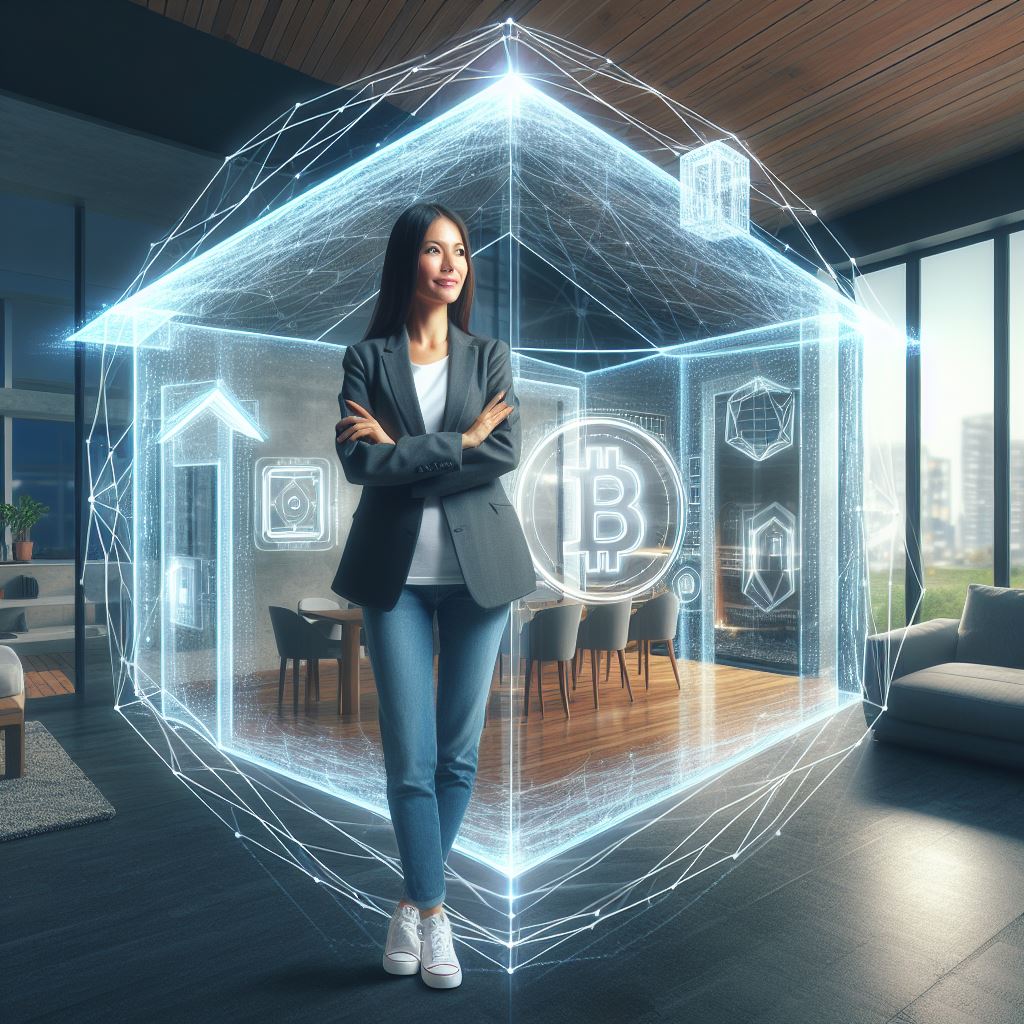Introduction
Virtual reality (VR), a simulated experience, can revolutionize the real estate market.
Property values, which determine the worth or market price of a property, are greatly influenced by the introduction of VR technology.
With VR, potential buyers and investors can explore properties without physically visiting them.
VR provides an immersive experience that allows users to virtually walk through a property, inspect its layout, and visualize its potential.
This eliminates the need for traditional property tours, saving both time and resources.
By using VR, buyers can easily compare multiple properties and make informed decisions without the need for personal visits.
Furthermore, VR allows real estate agents and developers to showcase properties in a more engaging and interactive manner.
They can create virtual tours and presentations that highlight the property’s unique features, enhancing its perceived value.
This can attract a larger audience and generate more interest in the property, potentially leading to higher offers and increased property values.
Moreover, VR can also be used to showcase properties that are still under construction or in the planning stages.
Through realistic 3D renderings and simulations, potential buyers can visualize the finished property and make purchasing decisions before completion.
This can lead to a faster sales process and higher property values as developers can sell properties at a premium based on their future potential.
In fact, VR has the power to revolutionize the real estate market by substantially impacting property values.
By providing immersive experiences and virtual tours, VR technology makes property exploration more convenient, efficient, and interactive.
As VR becomes more widely adopted, it is expected to continue shaping the real estate industry and influencing property values.
VR Technology and its Applications in Real Estate
A. Overview of VR technology
- VR, or virtual reality, technology creates a simulated environment that can be similar or different from the real world.
- It typically involves the use of headsets and other devices to immerse users in a computer-generated environment.
- VR technology can provide a fully interactive and immersive experience, allowing users to explore and interact with virtual spaces.
- It has gained popularity in various industries, including gaming, healthcare, education, and now, real estate.
B. VR’s significance in the real estate industry
- VR technology has revolutionized the way properties are showcased and marketed in the real estate industry.
- It allows potential buyers to virtually explore properties from the comfort of their own homes.
- VR can create virtual tours, giving potential buyers a realistic feel of the property’s layout and features.
- This technology has significantly expanded the reach of real estate agents and developers, attracting more potential buyers.
C. Benefits of VR for property buyers and sellers
- For property buyers, VR technology offers a convenient and time-saving way to view multiple properties without physically visiting each one.
- Buyers can experience properties as if they were physically there, helping them make informed decisions.
- It eliminates geographical barriers, allowing international buyers to virtually explore and invest in properties from afar.
- Virtual staging enables sellers to showcase the potential of an empty property, making it more appealing to potential buyers.
- In addition to saving time, VR technology can also save money for both buyers and sellers.
VR technology is transforming the real estate industry by enhancing the property viewing experience and reaching a wider audience.
Read: AR Tools for Efficient House Hunting
Increased Accessibility and Convenience
In the fast-evolving landscape of real estate, Virtual Reality (VR) has emerged as a transformative force, significantly influencing property values.
One of the key contributors to this impact is the increased accessibility and convenience that VR brings to the property market.
A. Virtual Property Tours
Gone are the days when potential homebuyers had to rely solely on static images or traditional videos to get a glimpse of a property.
VR technology now offers immersive virtual property tours, allowing buyers to explore homes as if they were physically present.
This enhanced experience provides a comprehensive understanding of the property’s layout, design, and overall ambiance.
The interactive nature of virtual property tours enables users to navigate through different rooms, inspect details, and gauge spatial relationships.
This not only aids in making more informed decisions but also eliminates the need for multiple in-person visits, reducing the inconvenience for both buyers and sellers.
B. Viewing Properties Remotely
VR transcends geographical barriers, enabling potential buyers to view properties remotely.
This is particularly beneficial for individuals who are relocating or investing in real estate in a different city or country.
Through VR, buyers can virtually walk through properties, assessing them in detail without the need for physical presence.
Real estate agents can leverage VR technology to conduct live virtual tours, providing personalized walkthroughs and addressing queries in real-time.
This level of convenience empowers buyers to make decisions confidently, irrespective of their location, fostering a more globalized real estate market.
C. Saving Time and Costs
The traditional process of property hunting often involves a considerable investment of time and money. With VR, these costs are significantly reduced.
Prospective buyers can filter through properties more efficiently, focusing only on those that genuinely align with their preferences.
This streamlining of the search process not only saves time but also reduces travel expenses associated with physically visiting multiple properties.
For sellers, incorporating VR technology translates to a more targeted approach, attracting potential buyers who have already vetted the property virtually.
This not only accelerates the sales process but also minimizes the disruption caused by frequent showings.
In short, the increased accessibility and convenience offered by VR in real estate have a profound impact on property values.
As the technology continues to advance, it reshapes the way buyers and sellers interact with the market, making property transactions more efficient, cost-effective, and accessible to a broader audience.
Read: VR Home Customization: A Reality
Enhanced Visualization and Immersion
In the ever-evolving landscape of real estate, Virtual Reality (VR) has emerged as a transformative force, profoundly influencing property values.
At the heart of this revolution lies enhanced visualization and immersion, reshaping how potential buyers perceive and connect with properties.
A. Simulating Property Interiors and Exteriors
VR technology enables prospective buyers to virtually step into a property, exploring both its interiors and exteriors with unprecedented realism.
Gone are the days of relying solely on static images and blueprints; now, buyers can navigate through rooms, experience spatial dimensions, and gauge the flow of natural light.
This immersive experience transcends traditional property showcases, offering a firsthand perspective that fosters a more profound understanding of a home’s unique features.
B. Customization and Interactive Experiences
VR extends beyond passive observation, empowering users with customization options and interactive experiences.
Through VR platforms, potential buyers can envision personal touches, experimenting with various design elements before making a commitment.
From wall colors to furniture placement, the ability to tailor the virtual environment enhances the sense of ownership before the actual purchase.
This level of engagement not only aids in decision-making but also fosters a deeper connection between the buyer and the property.
C. Impact on Emotional Connections with Properties
One of the most remarkable impacts of VR on property values is its ability to evoke emotional connections.
The immersive nature of virtual experiences triggers an emotional response, allowing buyers to visualize their lives within the space.
As individuals explore a property through VR, they form a connection that goes beyond the physical structure.
This emotional engagement is a powerful factor in influencing property values, as it transforms a transaction into a meaningful investment in one’s lifestyle and future.
In essence, enhanced visualization and immersion through VR are redefining the real estate landscape.
By simulating property interiors and exteriors, offering customization options, and fostering emotional connections, VR is elevating the property-buying experience.
As we navigate the future of real estate, the impact of VR on property values is undeniable, reshaping the way we perceive and invest in the places we call home.
Read: Virtual Open Houses: A New Era

Influence on Decision-Making Process
A. Facilitating informed property purchases
Virtual reality (VR) technology is revolutionizing the real estate industry, particularly when it comes to the decision-making process for property purchases.
With VR, potential buyers can virtually walk through properties from the comfort of their own homes, gaining a more realistic and immersive experience than traditional property listings could ever offer.
By using VR, real estate agents and sellers can provide potential buyers with a comprehensive view of the property, showcasing its features and layout in a way that static images or videos cannot.
This enables buyers to make more informed decisions about whether to pursue a property further, as they can gain a better understanding of its potential before even setting foot inside.
B. Reducing uncertainty and risk
One of the biggest challenges in the property market is the uncertainty and risk associated with purchasing a property.
Buyers often face the fear of making a significant investment without knowing what the property truly looks and feels like.
This uncertainty can lead to hesitation, delays, and missed opportunities.
VR helps to alleviate these concerns by offering a realistic representation of properties.
As buyers virtually walk through the property, they can evaluate its size, layout, and overall appeal.
This reduces the risk of making a poor purchase decision based solely on limited information or misleading visuals.
C. Empowering buyers and sellers
VR not only benefits buyers but also empowers sellers and real estate agents in the decision-making process.
By utilizing VR technology, sellers can reach a wider audience, attracting potential buyers from different locations who may not be able to physically visit the property.
Furthermore, VR enables sellers and agents to showcase properties in their best light, enhancing their marketing efforts.
By offering potential buyers an immersive virtual experience, sellers can generate more interest and increase the chances of a successful sale.
- VR facilitates informed property purchases by providing virtual walk-throughs of properties.
- It reduces uncertainty and risk by offering a realistic representation of properties.
- VR empowers buyers and sellers by reaching a wider audience and enhancing marketing efforts.
All in all, VR has a significant impact on the decision-making process when it comes to property purchases.
It facilitates informed decisions by providing potential buyers with a realistic and immersive experience of the property.
Additionally, it reduces uncertainty and empowers both buyers and sellers in the real estate market. As VR technology continues to advance, its influence and importance in the property market will only continue to grow.
Read: AR for Accurate Property Blueprints
Potential Challenges and Limitations
A. Accessibility and affordability of VR technology
- VR technology may not be readily accessible to all individuals due to hardware and software requirements.
- The cost of VR equipment and setups may present affordability challenges for potential users.
- Limited internet connectivity and bandwidth issues can hinder the adoption and use of VR technology.
- Upgrading and maintaining VR devices may require additional expenses for users.
- Not everyone may have the technical skills or knowledge to properly operate VR systems.
B. Accuracy and trustworthiness concerns
- There may be doubts about the accuracy and reliability of VR representations of properties.
- Photos and videos can be manipulated to present a deceptive view of a property’s actual condition.
- Users may struggle with distinguishing between real and virtual features, leading to misunderstandings or false expectations.
- Data security and privacy issues may arise when using VR technology for property viewings.
- Potential discrepancies between the virtual representation and the physical property can undermine trust.
C. Balancing VR with traditional property viewings
- Some individuals may prefer the tangible experience of physically visiting a property.
- The absence of a personal connection and the inability to fully experience a property’s atmosphere can be drawbacks.
- Properties can still have hidden defects that are not apparent through virtual tours alone.
- Real estate professionals need to find a way to integrate VR technology into their existing processes.
- Not all properties may be suitable for virtual tours, such as those still under construction or renovation.
While VR technology offers numerous benefits for property viewings and can potentially impact property values, it also comes with challenges and limitations that need to be addressed.
The accessibility and affordability of VR equipment may limit its widespread usage, while concerns about accuracy and trustworthiness may hinder its adoption.
Additionally, finding the right balance between virtual and traditional property viewings is essential to cater to different preferences and circumstances.
Despite these challenges, VR technology has the potential to revolutionize the real estate industry and reshape how properties are marketed and viewed.
Case Studies and Examples
A. Successful implementation of VR in the real estate market
Several case studies demonstrate the success of implementing virtual reality technology in the real estate market.
In one case, a real estate agency started using VR to showcase their properties, resulting in increased interest from potential buyers.
Using VR, potential buyers could virtually walk through the properties and get a sense of the space and layout before visiting in person.
This not only saved buyers time and effort but also helped them make more informed decisions about which properties to visit.
The agency reported a significant increase in property inquiries and a boost in sales since incorporating VR technology.
B. Impact on property values in specific locations
VR has had a notable impact on property values in specific locations where the technology is widely adopted.
For instance, in a city where VR is commonly used for property viewings, there has been a surge in demand for properties in the area.
Buyers are willing to pay a premium for properties that offer virtual reality tours, as it gives them a competitive advantage in the market.
This increased demand and willingness to pay higher prices have led to an appreciation in property values within these VR-friendly locations.
C. Real-life testimonies from buyers, sellers, and real estate agents
Real-life testimonies from various parties involved in the real estate market further highlight the impact of VR on property values.
Buyers express their satisfaction with VR technology, as it allows them to make more informed decisions and eliminates the need for multiple in-person viewings.
Sellers report that properties with virtual reality tours attract more interest and sell faster than those without.
Real estate agents find VR to be a valuable tool in their arsenal, as it helps them showcase properties to potential buyers more effectively.
Additionally, agents mention that VR has helped them close deals faster and achieve higher selling prices for their clients’ properties.
Future Prospects and Trends
A. AR’s Evolving Role in Property Valuations
Virtual Reality (VR) has emerged as a transformative force in the real estate landscape, redefining how we perceive and assess property values.
As we look to the future, the evolution of VR’s role in property valuations becomes a pivotal aspect to explore.
Currently, VR is primarily employed to offer immersive virtual property tours, allowing potential buyers to virtually explore homes without leaving their own.
However, the future promises a more intricate integration of VR into property valuation methodologies.
Advanced VR algorithms and machine learning models are anticipated to play a crucial role in property appraisals.
These systems can analyze vast datasets, considering not only the physical attributes of a property but also the surrounding neighborhood dynamics, local amenities, and market trends.
This holistic approach ensures a more accurate and nuanced valuation process, ultimately impacting property values.
B. Integration of VR with Other Technologies
The future of VR in real estate is not limited to standalone applications.
An exciting trend on the horizon is the seamless integration of VR with other cutting-edge technologies.
Augmented Reality (AR), for instance, could enhance property showings by overlaying real-time information about a property’s history, pricing trends, or potential renovations.
This fusion of technologies creates a comprehensive experience, empowering buyers and sellers with a wealth of contextual information.
Additionally, the synergy between VR and Artificial Intelligence (AI) holds promise.
AI-driven predictive analytics can anticipate property value fluctuations, enabling stakeholders to make informed decisions.
The integration of these technologies marks a paradigm shift in how we perceive and engage with real estate, ushering in a new era of sophistication and efficiency.
C. Predictions for the Future of VR in Real Estate
Looking ahead, the trajectory of VR in real estate appears promising.
As technology continues to advance, VR applications will become more sophisticated, offering users an even more realistic and personalized experience.
We can expect VR to play a pivotal role in not just property valuations but also in property development and urban planning.
Furthermore, the democratization of VR tools may lead to increased accessibility for both real estate professionals and the general public.
This accessibility, coupled with evolving regulations and industry standards, will likely foster a more transparent and efficient real estate market.
Therefore, the future prospects of VR in real estate are exciting and multifaceted.
From redefining property valuations to integrating with other cutting-edge technologies, VR is poised to revolutionize the way we perceive, buy, and sell real estate.
As we navigate this technological frontier, the collaboration between innovation and real estate promises a landscape that is not only immersive but also remarkably informed and efficient.
Conclusion
A. Recap of VR’s Impact on Property Values
Virtual Reality (VR) has revolutionized the real estate landscape, reshaping property values through immersive experiences.
- Enhanced Property Tours: VR technology offers realistic virtual property tours, boosting buyer engagement and interest.
- Increased Property Exposure: Virtual showings transcend geographical boundaries, expanding property visibility globally and stimulating market demand.
- Buyer Decision Empowerment: Prospective buyers gain confidence in their decisions, as VR enables them to explore properties remotely with unprecedented detail.
- Time and Cost Savings: VR reduces the need for physical property visits, saving time and expenses for both buyers and sellers.
B. Call to Action for Readers to Explore VR’s Applications
Take charge of your real estate journey! Embrace VR to experience properties like never before and unlock new possibilities.
- Explore VR Platforms: Dive into virtual property tours on VR platforms to witness the future of real estate firsthand.
- Attend Virtual Open Houses: Attend virtual open houses to gain insights into the potential of VR in showcasing properties.
- Engage with VR Realtors: Connect with VR-savvy realtors who leverage technology to enhance your property search and buying experience.
C. Final Thoughts on the Future of VR in the Real Estate Industry
As we conclude, envision a future where VR seamlessly integrates into the real estate fabric, redefining property transactions.
- Evolving Technology: Anticipate continuous advancements in VR technology, offering even more immersive and interactive property experiences.
- Industry-wide Adoption: Expect widespread adoption of VR in the real estate sector, becoming a standard tool for property marketing and sales.
- Transformative Potential: The convergence of VR and real estate is poised to revolutionize the industry, creating a dynamic and efficient marketplace.
In closing, as VR transforms the way we perceive and transact real estate, embracing its applications will empower both buyers and sellers in this ever-evolving market.
Explore the possibilities, and step into the future of real estate with Virtual Reality.




